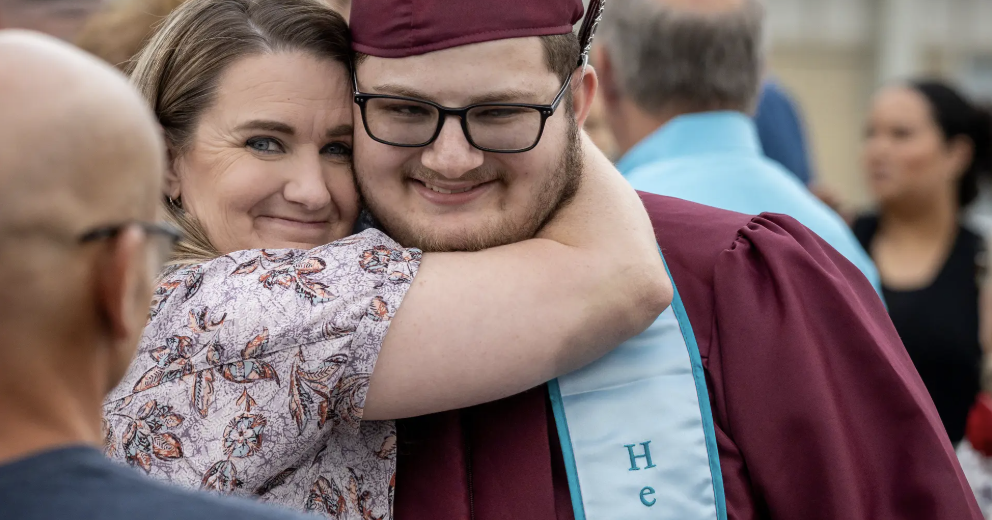
Projects +
Education
Ray Carter | February 19, 2025
Legislation making it slightly easier for Oklahoma families to access a scholarship program for children with special needs has cleared its first legislative hurdle.
Since 2010, Oklahoma’s Lindsey Nicole Henry Scholarships for Students with Disabilities (LNH) program has allowed students to use state tax dollars to pay for private-school tuition. Those eligible for the program are children with special needs who have an individualized education program (IEP), adoptive children, and foster children.
However, children cannot currently receive an LNH scholarship until they have been in the public-school system for at least one year, even when a local school cannot properly serve a child and parents have identified a private school that can.
Senate Bill 105, by state Sen. Julie Daniels, eliminates the current requirement for a student to spend at least one year in the public-school system before qualifying for the LNH program.
“I do believe that clarifying this act and taking away this arbitrary requirement for being in school for one year will really help some more of these families,” said Daniels, R-Bartlesville.
According to the Oklahoma Cost Accounting System, revenue in Oklahoma public schools is $13,736 per student. Meanwhile, the average LNH private-school scholarship is $7,866 per student.
She noted that LNH recipients account for only about 0.2 percent of all students who would be in the public-school system, and said the bill is not expected to cause a dramatic change in the number of LNH beneficiaries as a share of students.
The size of an LNH scholarship is tied to the unique special needs of each child. The scholarships range from $4,196 per child to $22,236.
Daniels said the program provides major benefits to vulnerable families, referring to a private school in Bartlesville that serves children with autism. Because of the extensive measures involved in aiding those children, tuition at that school is around $18,000 per year. Daniels noted that the LNH program makes the school a viable option for many families whose children might otherwise not receive an appropriate education.
“This is a critically important program serving a small but significant number of students in Oklahoma who have these special needs,” Daniels said.
In the 2023-2024 school year, the most recent for which data are available, the LNH program provided $12.2 million in scholarships to 1,557 students.
That means the average LNH scholarship that year was $7,866 per student, which is substantially less than the average per-pupil revenue provided for all public-school students.
According to financial data reported by schools to the state’s Oklahoma Cost Accounting System (OCAS), per-pupil revenue in Oklahoma public schools reached $9,600,703,488 in new revenue in the 2023-2024 school year. Since student enrollment was 698,923 in the 2023-2024 school year, that comes out to an average of $13,736 per pupil.
Even with the average LNH scholarship being far less than the per-pupil revenue in Oklahoma public schools, many private schools are willing to serve LNH students who have various special needs and learning challenges.
In September 2010, after the bill creating the LNH scholarships was signed into law, the program launched with only 13 private schools participating. That number has steadily increased in the years since. According to the Oklahoma State Department of Education, there are now 100 private schools participating in the LNH program.
However, state Sen. Mark Mann, D-Oklahoma City, suggested that removing the requirement for one year in public school will incentivize parents to effectively obtain false diagnoses of special needs so their children can receive LNH funds.
“I find a pre-K program I really want my kid in and so I go around until I can get the diagnosis I need to get my kid on an IEP, resulting in us over-identifying the number of students who need to be on IEPs versus those who do not,” Mann said.
But state Sen. Dave Rader, R-Tulsa, noted that the IEP process is not easily gamed. Referencing parent feedback on another bill that would have altered the IEP process, Rader said, “I received numerous, numerous emails detailing about the difficulty of receiving an IEP, that it’s just not something that’s handed out casually.”
SB 105 passed the Senate Education Committee on a 9-3 vote that broke along party lines with Republicans in favor and Democrats opposed.
Director, Center for Independent Journalism
Ray Carter is the director of OCPA’s Center for Independent Journalism. He has two decades of experience in journalism and communications. He previously served as senior Capitol reporter for The Journal Record, media director for the Oklahoma House of Representatives, and chief editorial writer at The Oklahoman. As a reporter for The Journal Record, Carter received 12 Carl Rogan Awards in four years—including awards for investigative reporting, general news reporting, feature writing, spot news reporting, business reporting, and sports reporting. While at The Oklahoman, he was the recipient of several awards, including first place in the editorial writing category of the Associated Press/Oklahoma News Executives Carl Rogan Memorial News Excellence Competition for an editorial on the history of racism in the Oklahoma legislature.
Ray Carter is the director of OCPA’s Center for Independent Journalism. He has two decades of experience in journalism and communications. He previously served as senior Capitol reporter for The Journal Record, media director for the Oklahoma House of Representatives, and chief editorial writer at The Oklahoman. As a reporter for The Journal Record, Carter received 12 Carl Rogan Awards in four years—including awards for investigative reporting, general news reporting, feature writing, spot news reporting, business reporting, and sports reporting. While at The Oklahoman, he was the recipient of several awards, including first place in the editorial writing category of the Associated Press/Oklahoma News Executives Carl Rogan Memorial News Excellence Competition for an editorial on the history of racism in the Oklahoma legislature.
Phone: 405.602.1667
digital@ocpathink.org
© 2025 Oklahoma Council Of Public Affairs
All Rights Reserved

Recent Comments